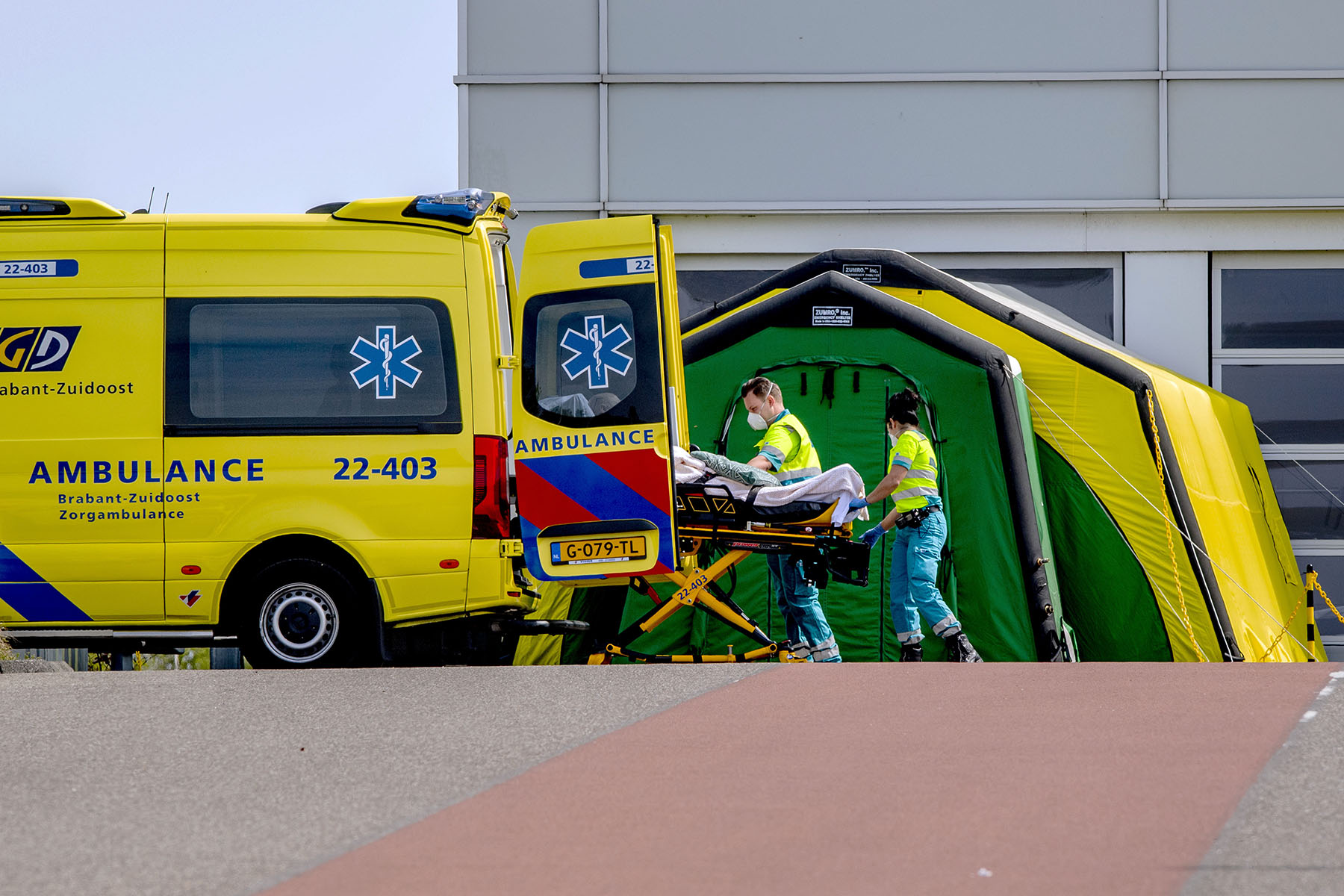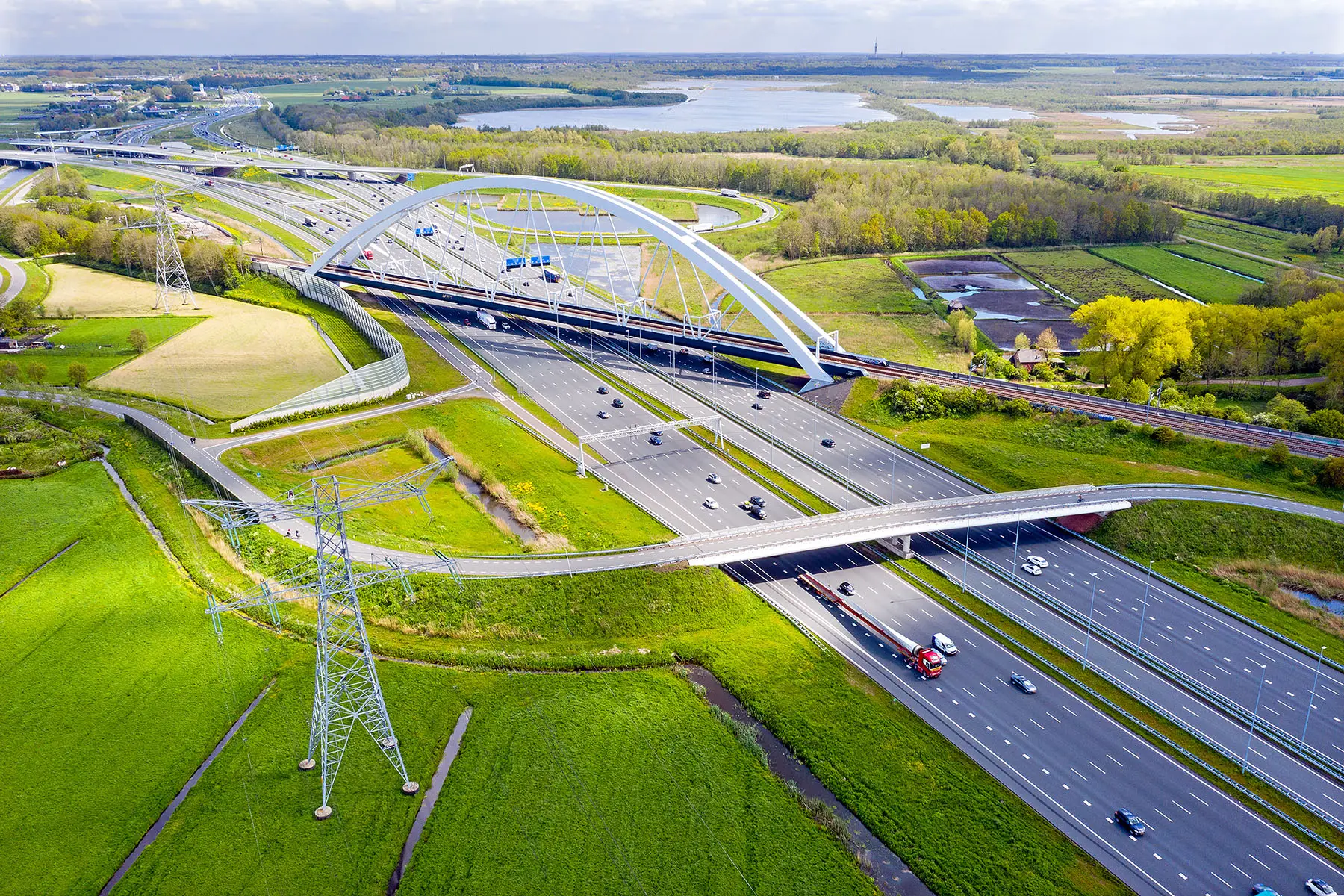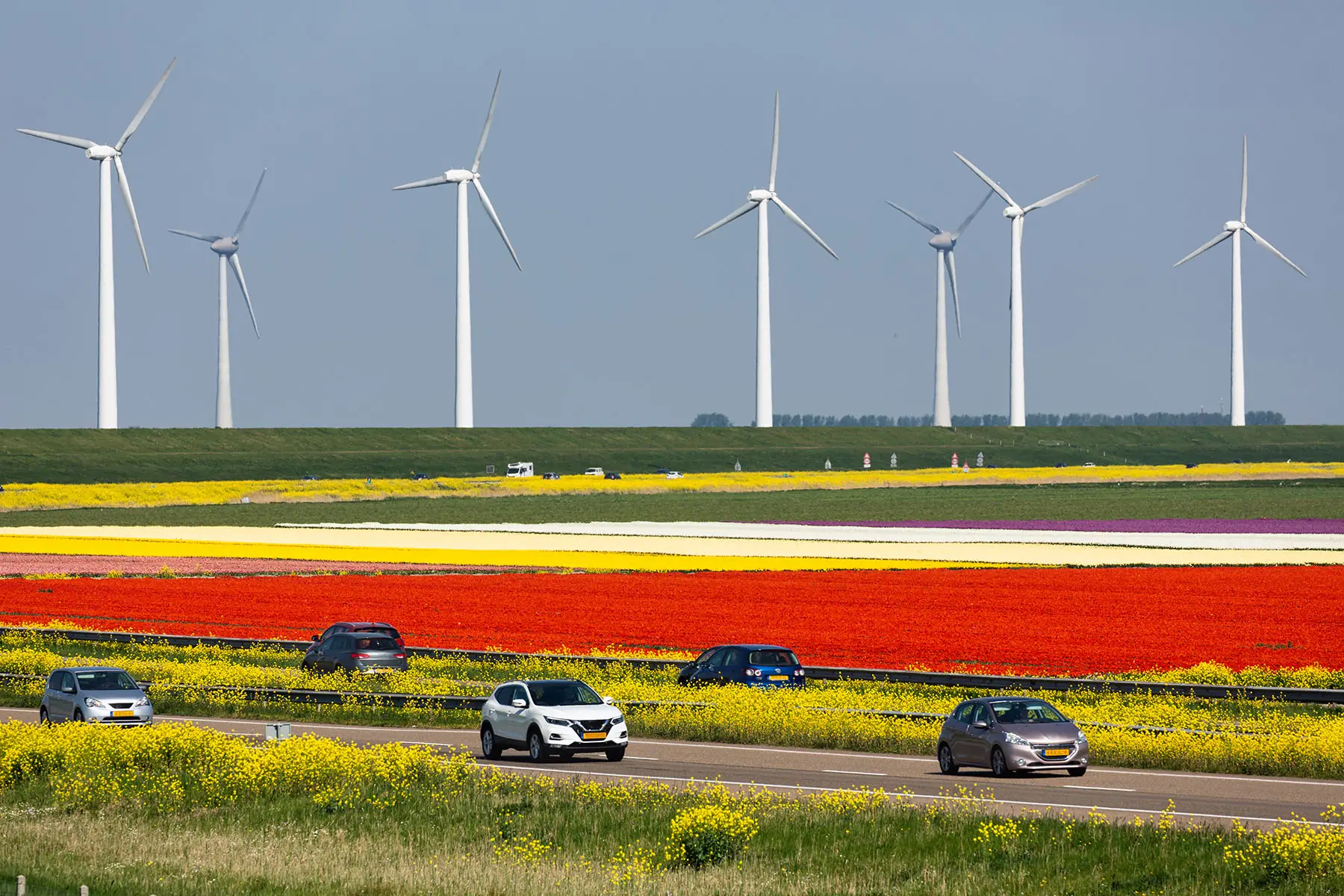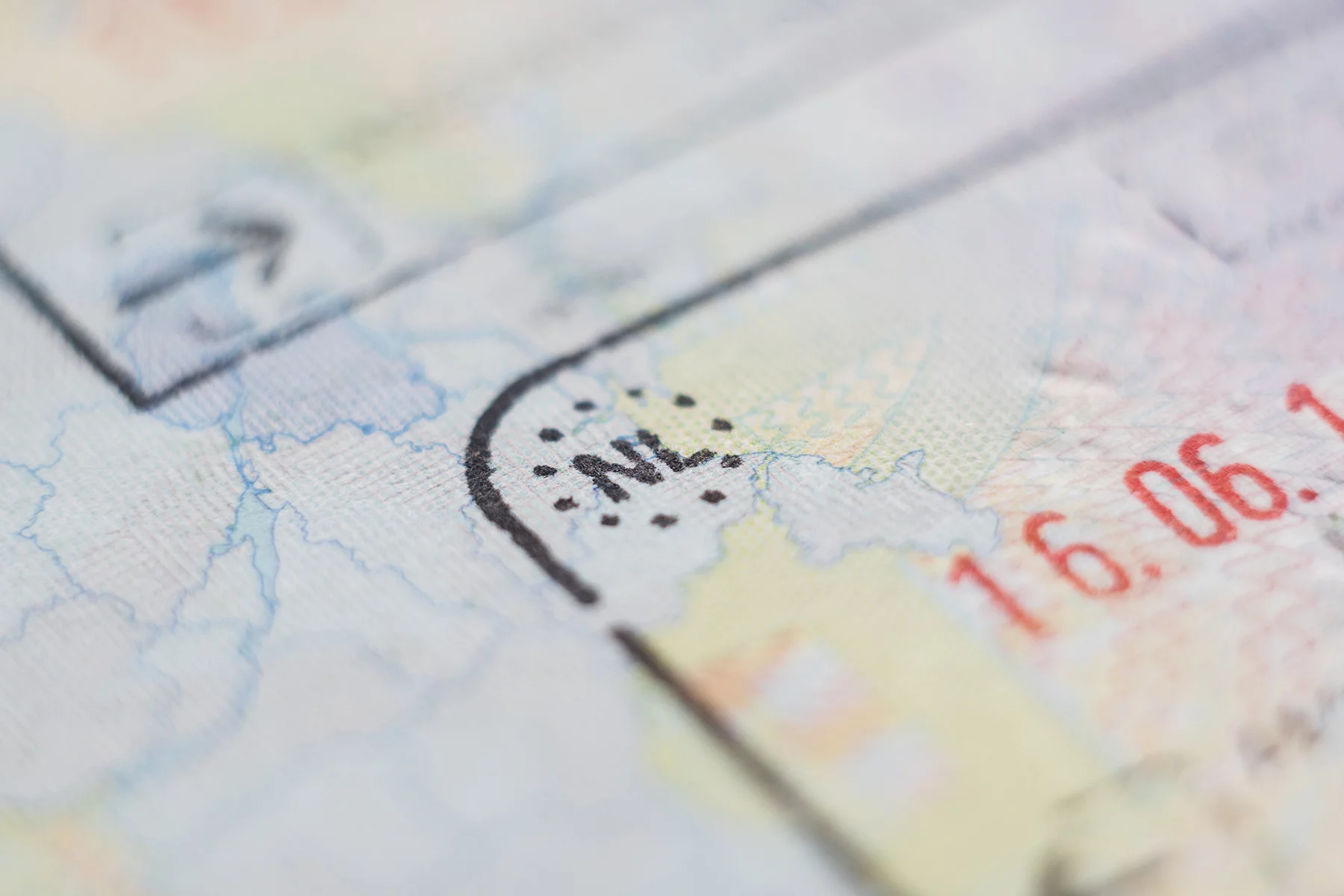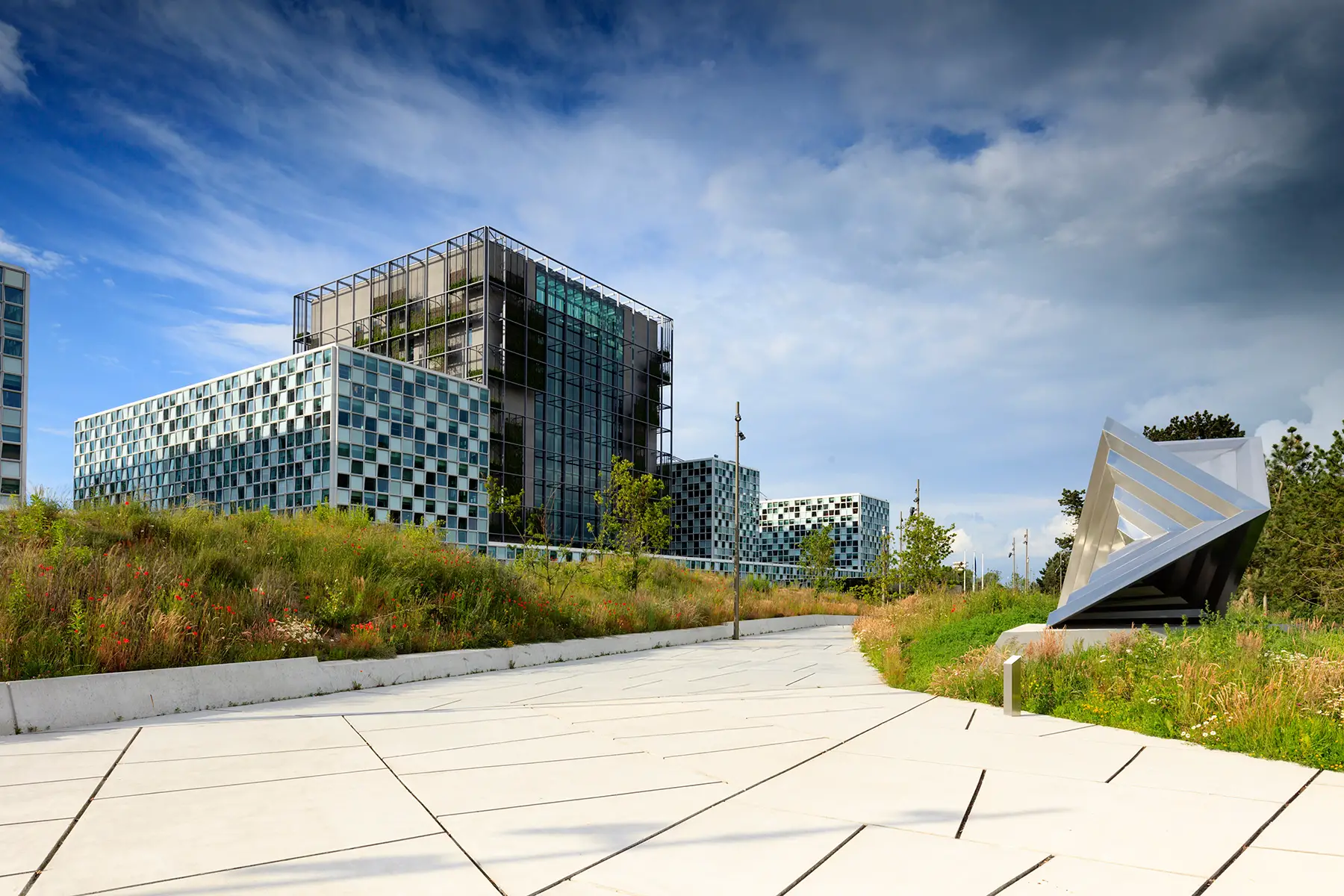You don’t have to be a hardened criminal to come in contact with the police. For example, your online purchase proved to be a Marktplaats scam, or you could be taken to court after driving off after an accident.
When that happens, having some knowledge of the justice system could help you prepare for what comes next. Here’s what you need to know about crime in the Netherlands, including the following:
- The legal system in the Netherlands
- Crime and crime rates in the Netherlands
- Overview of the Dutch police force
- The criminal justice system in the Netherlands
- Punishments and sentences in the Netherlands
- The Dutch prison system: facts and figures
- Your rights if you are arrested in the Netherlands
- Useful resources
Ground News
Get every side of the story with Ground News, the biggest source for breaking news around the world. This news aggregator lets you compare reporting on the same stories. Use data-driven media bias ratings to uncover political leanings and get the full picture. Stay informed on stories that matter with Ground News.
The legal system in the Netherlands
Like most other democratic countries, the Dutch government is separated into three branches – the legislative, executive, and judicial powers (i.e., trias politica).

The judicial power (i.e., the legal system) consists of a mix of public and private laws:
- Administrative law (bestuursrecht) regulates the relationship between the government and the people. These laws are outlined in the General Administrative Law Act (Algemene wet bestuursrecht – Awb).
- Civil law (burgerlijk recht) deals with conflicts between people or legal entities (such as companies) and is meant to settle things and arrange compensation. Most civil law can be found in the Dutch Civil Code (Burgerlijk Wetboek).
- Criminal law (strafrecht) handles offenses against the state or society as a whole (e.g., murder, theft, fraud). Criminal cases punish those who have violated the law and protect society from unlawful behavior. The Criminal Code (Wetboek van Strafrecht – WvSr) and the Code of Criminal Procedure (Wetboek van Strafvordering – WvSv) form the basis of Dutch criminal law.
The government is responsible for creating and upholding laws and decrees. Other sources of law in the Netherlands include the Constitution and international law (e.g., regulations from the European Union (EU) and the United Nations (UN)).
How fair is the Dutch legal system?
The Netherlands ranks 8th out of 142 countries on the 2024 World Justice Project’s Rule of Law Index, meaning it has a strong civil and criminal justice system. The country scores particularly well on the absence of corruption.
The Global Access to Justice Project is similarly positive, concluding that the Dutch legal system is transparent and citizens have great access to reliable information and mediation. All levels that are involved – people, lawyers, governments – enjoy a growing (good) cooperation.

The sentiment is echoed by the population. According to a 2023 Justicebarometer survey, seven out of 10 people have confidence in judges (72%) and the police (70%). Around 52% of the population trusts the Public Prosecution Service (Openbaar Ministerie). This is similar to elsewhere in Europe, where 52% trust their legal respective systems.
Crime and crime rates in the Netherlands
The Netherlands is among the safest countries in the world, ranking 18th out of 163 on the 2024 Global Peace Index (GPI). While crime rates are higher than the neighboring country Belgium, they are lower than in Germany, France, and Spain.
Most crimes were reported in the four largest cities in the Netherlands: Amsterdam, Rotterdam, The Hague, and Utrecht. The most common types of violations are (2023):
- Theft and burglary
- Leaving the scene of a traffic accident
- Vandalism and damage
- Fraud
- Driving under the influence
You can check local crime rates on the Dutch police platform Waar Staat Je Gemeente.
While this section paints a relatively safe picture of the Netherlands, the country does hide a dark criminal underbelly (Global Organized Crime Index, 2023). The Netherlands is a prime source, transit, and destination for human trafficking, with many victims coming from Nigeria, Poland, Romania, Bulgaria, and Hungary.
Drug trafficking and distribution is also a widespread occurrence in the Netherlands. Although the country tolerates the sale of soft drugs (cannabis and hash) in coffee shops, it strictly prohibits the possession, sale, and production of other drugs (e.g., magic mushrooms, XTC, and cocaine).
Tips for preventing crime
You are not at fault when you fall victim to a crime. Even so, there are some things within your control that can help keep you and your belongings safe.

In general, it’s important to pay attention and be aware of your surroundings. Dark allies and underground passages are often deserted and vulnerable to theft-related crimes. It’s also good to remain in well-lit parts when you walk alone at night. Try to avoid dark roads and forested areas in particular.
If possible, you should carry your most valuable possessions (e.g., passport, residence card, bank cards, and cell phone) out of sight and in different places on your body. Pickpocketing is not common in the Netherlands, but it is not unheard of.
Protect yourself against online scams by setting up strong passwords and two-factor authentication. You can also use ScamCheck to see whether a website or e-retailer is safe. The government’s Laat Je Niet Neppen and the Fraud Help Desk provide more cybersecurity tips to increase your safety online.
With regard to property theft, make sure you don’t leave any valuables in your car and keep your doors locked and windows closed at gas stations. The same applies to your home: remember to lock the doors and close the windows when leaving the house.
The Dutch police also recommend installing proper outdoor lighting, for example, with a twilight switch or motion sensor. You may also want to register the serial numbers of valuables (to help trace them if stolen) and join Neighborhood Prevention Groups on WhatsApp.
When a crime does occur, you might face avoidable costs. As such, it’s recommended that you take out reliable insurance (e.g., car insurance, home insurance).
How to report a crime
If you are a victim of a crime
In case of an emergency, you must call the pan-European number 112. The operator will direct you to the local police in the Netherlands.

You can report non-urgent crimes to the police’s non-emergency phone 0900 – 8844 or in person at your nearest police station (politiebureau). The last option requires you to make an appointment first. Certain small offences can also be reported online. Keep in mind that you must log in with your DigiD (digital identity) and the report must be in Dutch.
To report a crime, you must identify yourself with a valid passport or ID card. If your identification documents are lost or stolen, you must first contact your home embassy or consulate.
Make sure to provide as much information as possible to assist with the investigation. This includes the crime itself, the time and location, the physical description of the perpetrator(s), and any possible witnesses.
If you are the witness of a crime
Witnesses are legally obligated to report serious (potential) crimes, such as:
- Murder or manslaughter
- Rape
- Threats to public security (e.g., a terrorist attack)
You are not legally required to report crimes perpetrated by yourself, your (ex)partner, or family members.

Witnesses can come forward at a police station or by contacting the non-emergency number 0900 – 8844. If you are not legally obliged to report the crime, you can also provide anonymous information to Report Crime Anonymous (Meld Misdaad Annoniem).
Witnesses may be asked to give evidence in court.
Overview of the Dutch police force
The police force (politie) in the Netherlands has three levels: local, regional, and national. Depending on the nature of the crime, the investigation is led by either of these units.
Basic policing (e.g., surveillance and keeping order) is handled by the local police (basisteams) at a district level (politiedistrict). In 2021, the Netherlands had 43 districts and 167 basic police units.
The regional police is responsible for most operational tasks, including criminal investigations and highway security. The Netherlands has 10 regional police units, including one for Amsterdam, Rotterdam, and The Hague.
The national police (landelijke eenheden) carries out cross-regional and specialist tasks (e.g., detecting serious forms of organized crime). These units also assist with cross-border investigations.
The criminal justice system in the Netherlands
The Code of Criminal Procedure lists the regulations for crime detection, investigation, prosecution, the rights and obligations of the parties, court rulings, and the implementation of punishments.
After you have reported a crime, the Dutch criminal justice system will be set in motion. Simply put, this is made up of three different stages:
- The police investigates the crime and collect evidence. If they can identify the perpetrator, they’ll forward their report to the public prosecutor (officier van justitie). The latter will then decide whether to dismiss the case or continue with a prosecution.
- Next, the case is taken to court. A judge (politierechter) will assess whether the accused is guilty or innocent. If the case involves a serious crime that can lead to a prison sentence of at least one year, the verdict is decided by a panel of three judges (meervoudige kamer).
- Finally, if found guilty, the judge will rule on a sentencing. They will also decide when the sentencing will commence. After that, the criminal can file an appeal.
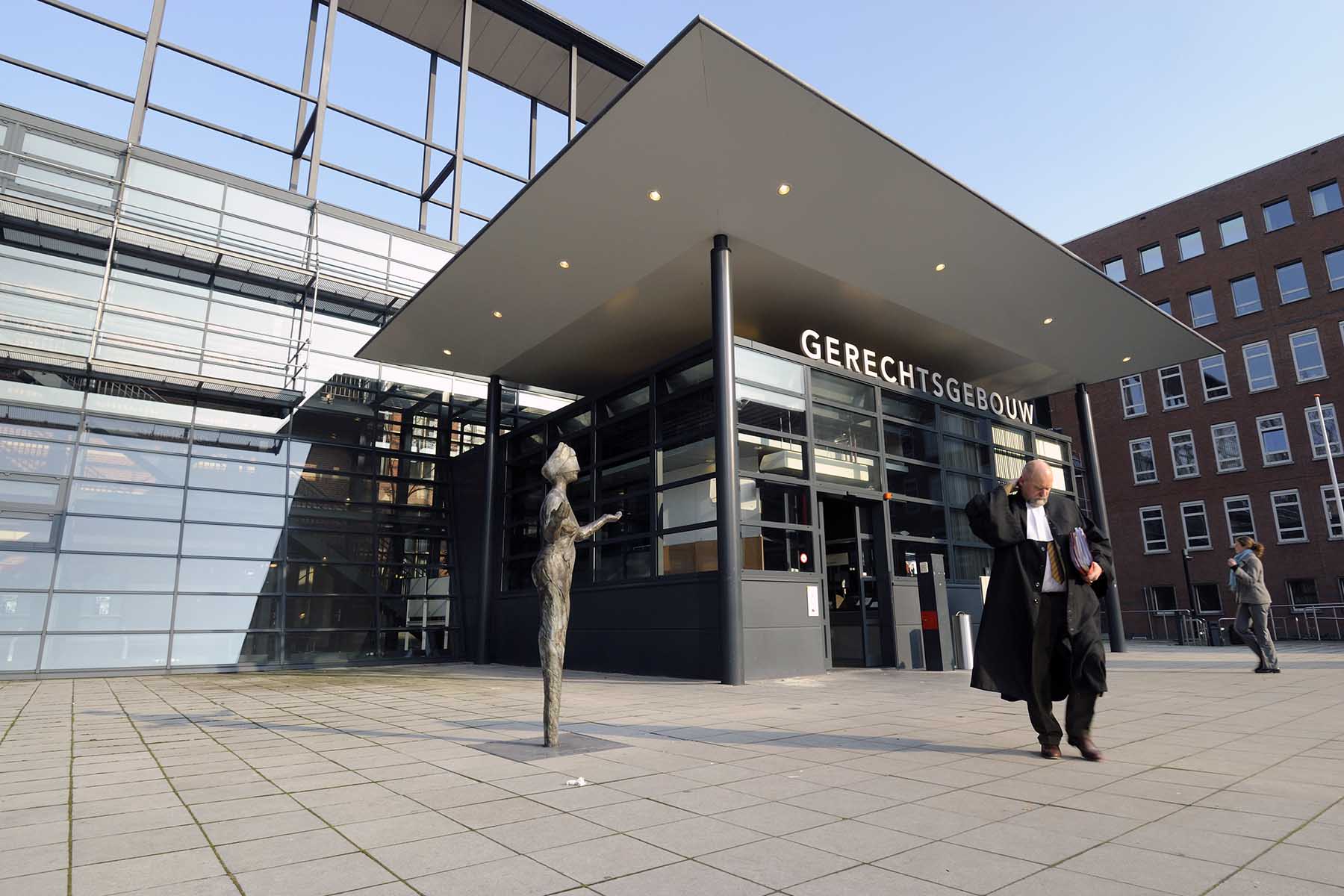
Throughout the process, there are strict measures in place to ensure that the rights of the accused are protected. Defendants are presumed innocent until proven otherwise, and participating in a trial is a right and not an obligation. The accused has the right not to attend or answer questions during the trial. Similarly, they don’t have to attend the sentencing.
The court and corrections systems in the Netherlands are overseen by the Ministry of Justice and Security (Ministerie van Justitie en Veiligheid – JenV). The country is also part of international organizations (e.g., Interpol and Europol) that fight against organized crime and terrorism. These also fall under the responsibility of the JenV.
How does the Dutch court system work?
In the Netherlands, judges are independent from the JenV and are appointed for life. The Dutch court system is hierarchical and divided into three tiers:
- District Court (Rechtbank) – most cases (administrative, civil, and criminal) will first appear in a district court. There are 11 of these lower courts in the Netherlands.
- Court of Appeal (Gerechtshof) – if you or the prosecutor don’t agree with the verdict, you or they can take the case to the Court of Appeal. There are four of these courts in the Netherlands.
- Supreme Court (Hoge Raad) – the Supreme Court can rule that a court case must be reopened or get a do-over. These judges don’t look at the facts (evidence) of a case, but at the lower court’s judicial procedures and application of the law. Their decisions are final and are often seen as the last resort.
At the same level as the Supreme Court, the Netherlands also has three specialized high courts:
- Court of Appeals for the business sector (College van Beroep voor het bedrijfsleven) – this court rules on economic administrative law
- Central Court of Appeals (Centrale Raad van Beroep) – this court judges on social insurance, social services, and civil service
- Council of State (Raad van State) – this court deals with general administrative law and immigration appeals
The courts are overseen by the Council for the Judiciary (Raad voor de rechtspraak).
International courts in the Netherlands
The Netherlands is also home to a number of intergovernmental organizations and international courts, the most famous of which are the International Court of Justice (ICJ) and the International Criminal Court (ICC).

The ICJ is part of the United Nations (UN) and hears conflicts between countries. For example, in 1994, the court settled a longstanding and often bloody land dispute between Chad and Libya. After the ICJ ruled in Chad’s favor, Libya withdrew its military forces, and both countries signed a peace agreement.
The ICC, on the other hand, prosecutes countries and individuals for crimes against humanity, crimes against peace, crimes of aggression, genocide, and war crimes. For example, it has issued arrest warrants for both Russian President Vladimir Putin and Israeli Prime Minister Benjamin Netanyahu over alleged genocide and war crimes in Ukraine and Palestine, respectively.
Trial processes: how do Dutch trials work?
Investigative phase
After a crime report has come in, the police may start a criminal investigation (onderzoek) to gather evidence. When this is complete, they can decide to dismiss the case or forward it to the public prosecutor. The prosecutor then has the option to drop the case, propose a settlement, or indict the suspect in court.
In more complex cases, the judge can call for a more in-depth judicial investigation. During this time, the suspect may be held in pre-trial detention (voorlopige hechtenis) or await the trial outside of jail (voorlopige invrijheidstelling).
In the meantime, the public prosecutor will meet with the victim to discuss the next steps.
Trial phase
At trial (strafzitting), the presiding judge interrogates the defendant and hears any witnesses and experts. After considering all evidence, the judge can pronounce the ruling or keep the matter under consideration. In the case of the latter, the decision follows within two weeks of the court date.
If the defendant or public prosecutor does not agree with the outcome, they can file an appeal within six weeks to the Court of Appeal.

At all times, the victim and defendant have the right to an interpreter. You can find more information on the Victim Support Netherlands (Slachtofferhulp Nederland) website.
Punishments and sentences in the Netherlands
Depending on the crime, the Dutch Criminal Code can impose a fine, incarceration, or alternative sentence. The Netherlands does not have the death penalty (doodstraf).
Convicts can get the following punishments:
- Prison sentence (celstraf)
- Monetary fine (geldboete)
- Community service (taakstraf)
Judges can also impose measures, such as confiscating criminal gains or placing the perpetrator in a psychiatric facility (tbs). Likewise, they may stipulate certain restrictions (e.g., a no-contact order).
Does the Netherlands have a statute of limitations?
Certain crimes do have a statute of limitations in the Netherlands, which means there are time limits in which the prosecution must take place. In general, this is:
- Three years for minor violations (e.g., vandalism or public drunkenness)
- Six years for offenses that could result in a fine, detention, or imprisonment of up to three years (e.g., poaching)
- 12 years for crimes punishable by more than three years in prison (e.g., theft or fraud)
- 20 years for crimes that could lead to imprisonment of 8–12 years
- No time limit for crimes punishable by more than 12 years in prison
The most serious crimes (e.g., murder, rape, manslaughter, sexual abuse of children) do not have a statute of limitations.
What are the main crimes and punishments?
Driving/traffic violations
Traffic offenses often result in a fine (e.g., speeding or illegal parking). If you were caught driving under the influence, or you were in an accident that resulted in material or physical damages, you may be given a fine, lose your driving license, and face prison time.

Theft/burglary
Theft and burglary are considered minor offenses and are tried in lower courts. Despite the ‘minor crime’ classification, the correctional punishments are excessive and may include:
- Fine (up to €25,750)
- Prison sentence (up to four years)
- Community service
Since there are so many bicycles in the Netherlands, bike theft is fairly common. In 2023, almost 1 million were reported stolen. Thieves most commonly go after the generic black “granny bikes” (omafiets), though e-bikes are also increasingly targeted.
Fraud
People who commit fraud (fraude) can get a fine of up to €103,000 and up to four years in prison. Tax fraud may even result in a prison sentence of up to six years. On top of that, judges can order the criminal to do additional community service.
Alcohol-related offenses
The legal drinking age in the Netherlands is 18 years old. If a minor is caught with or buying alcohol or tobacco, they can receive a €50–100 fine.
Dutch adults must also “curb drunkenness.” That means you cannot drink alcohol in public spaces or cause disturbances while intoxicated, for example. Public drunkenness can result in a €110 fine.
Driving (and cycling!) under the influence is also illegal. If you are caught with a blood alcohol content (BAC – promille) of 0.5 or more (or 0.2 if you are a novice driver), you will get a fine of up to €21,500 and one point on your driving license. In most cases, you’ll also have to take a driver’s safety course. In some extreme circumstances, you can even face imprisonment.
It’s worth noting that cyclists will not lose their driver’s license when cycling drunk in the Netherlands.
Drug-related offenses
Despite what international reports may say – or the smells in Amsterdam may imply – drugs are illegal in the Netherlands. The punishments for drug-related crimes depend on the severity.
Minors under 18 caught in possession of soft drugs (up to 5 mg) face 12-hour community service or a €60 fine. Those with 5–30 mg receive a 16 to 30-hour community service or €80–150 fine. Being caught with cocaine or heroin (i.e., hard drugs) results in a 20 to 40-hour community service or €200 fine.
Adults over 18 in the possession of soft drugs (5–30 mg) receive a €75 fine.

Using soft drugs where not allowed results in a €110 fine. People using hard drugs in a public space face a €450 fine.
You can also get a €450 fine if you are in possession of drugs with the intent to sell. Drug trafficking and smuggling, on the other hand, including the purchase of large quantities, is a serious crime. Penalties include a €82,000 fine and up to 12 years in prison.
Immigration-related crimes
Expats living in the Netherlands must have a valid residence permit (verblijfsvergunning) and keep this their person at all times. You must be able to provide it when a law enforcement official asks you to. If you cannot or refuse to show it, you may be fined up to €1,500.
Illegal residents without a valid immigration document face a fine of up to €10,300 and imprisonment of up to six months. They may also be given an order to leave the Netherlands voluntarily. If need be, the authorities will place you in alien detention.
Assisting people without legal residence is not a criminal violation. Volunteers, professional care providers, or civil servants may provide legal help, medical assistance, food, clothing, or shelter.
However, abusing the vulnerable position of illegal immigrants is a crime. For example, landlords and employers exploiting persons without valid work visas can be prosecuted.
Likewise, human smuggling and trafficking is a criminal offense. People smugglers – those helping illegal residents to stay in the Netherlands or any other EU/EFTA country for monetary gain – risk fines of up to €103,000 and imprisonment of up to six years.
Crimes of anti-social behavior/stalking
Like theft and burglary, causing a public disturbance (verstoren van de openbare orde) and vandalism are minor offenses in the Netherlands. And like the aforementioned crimes, the punishment for anti-social behavior seems excessive.
If caught purposefully destroying other people’s property, you may face a fine of up to €25,750 and a prison sentence of up to four years.

Stalking is – apparently – less serious, resulting in up to three years in prison. The penalty for threats (bedrijging) and harassment (intimidatie), on the other hand, is also a fine of up to €25,750 and four years in prison.
Sex-based crimes
Sex crimes are serious offenses in the Netherlands. In July 2024, the country adopted a new law (Wet seksuele misdrijven) that makes it easier to prosecute sex-based crimes and increases the maximum sentences. For example, victims of rape and sexual assault no longer have to prove they were forced – simple signs that the sex was involuntary are enough.
The punishments for sexual assault and rape differ greatly depending on the crime and the intent. For instance, if the perpetrator thought the victim (over the age of 16) consented to the sexual assault, they can be sentenced to two years in prison. However, if the perpetrator knew the victim did not consent and used force during the rape, they could be sentenced to 12 years.
Under the new law, sexual intimidation in public is also a criminal offense. In the six months since the law passed, multiple men have been given fines or prison sentences.
Learn more about the law on sex crimes and the punishments by visiting the government’s website.
Hate crimes
The Dutch constitution grants equal rights to anyone within the country’s borders. Naturally, then, discrimination and hate crimes (haatmidaad) are punishable by law.
The punishments for these crimes depend on their severity. For example, discrimination can lead to a €10,300 fine and one year imprisonment. Hate crimes usually result in higher fines and longer prison sentences.

It should be noted that, rather than being specifically stated in the Criminal Code, these heftier punishments are common practice. This could soon change, though: in December 2024, the government supported a draft bill on hate crime. If passed by the Senate, the heftier punishments would be law.
There are several ways to report discrimination, such as calling the national discrimination helpline (0800 0880) or going straight to the police. You can also seek advice and support from the National Discrimination Hotline.
Murder and manslaughter
The most serious crimes in the Netherlands are violence-based, such as murder (moord) and manslaughter (doodslag). As mentioned before, these do not have a statute of limitations and can be prosecuted years after the crime occurred.
Those convicted of manslaughter can get a prison sentence of 25 years. Meanwhile, murder can lead to a sentence of life. It’s worth noting that life sentences in the Netherlands don’t mean the same as they do in countries like the US. Instead, prisoners can get paroled after 25 years or receive a governmental pardon after 28 years.
Acts of terrorism
Acts of terrorism (terrorisme) are considered severe crimes in the Netherlands, punishable by life in prison. People who prepare for an attack or participate in terrorist training are also punishable by law.

The government stresses that while jihadism is currently the main source of terrorism, more crimes fall under this category. For example, terrorist crimes from the extreme left, extreme right, and animal rights activists are also prosecuted.
The Dutch prison system: facts and figures
The penitentiary system in the Netherlands consists of youth detention centers and adult prisons. Both fall under the responsibility of the Custodial Institutions Agency (Dienst Justitiële Inrichtingen – DJI), which is part of the JenV. Those to be found criminally insane may also be held at closed psychiatric facilities (tbs kliniek).
Convicted minors and young adults between the ages of 14 and 21 can be detained in one of ten juvenile detention centers (Justitiële Jeugdinrichtingen or, more commonly, jeugdgevangenis). In 2023, 1,080 young offenders received a prison sentence.
Convicted adults over the age of 21 are taken to one of 50 adult prisons (Justitiële Inrichtingen or, more commonly, gevangenis). In Q1 2024, the Netherlands had just over 9,620 adult prisoners. According to 2023 data, most detainees are men (94%) and are born in the Netherlands (53%). Around 60% of all prisoners had done time before.
The Netherlands has often made international headlines for closing some of its old prisons. Indeed, the country has the fifth-lowest incarceration rate in Europe, just after Finland, Iceland, Monaco, and Liechtenstein.
Your rights if you are arrested in the Netherlands
After an arrest, you can be held for six hours if the crime doesn’t warrant pre-trial detention (e.g., insulting a police officer). If the crime does warrant pre-trial detention, you can be held for nine hours. In both cases, the hours between midnight and 09:00 don’t count towards the total.
In the interest of the investigation, the auxiliary public prosecutor can choose to prolong your arrest by three days.

Suspects have the right to speak with an attorney (advocaat). Minors can choose to have their legal guardian present during the interrogation. If the crime is (very) serious in nature (e.g., burglary or murder), you can also ask for a free attorney.
Those arrested in the Netherlands also have the right to:
- Remain silent
- Know why you are arrested or being interrogated
- A free interpreter if you don’t understand Dutch (well)
- Inform someone (e.g., a family member) of your arrest. If you are a foreign national, you may also inform your country’s embassy or consulate.
- Medical help
After the interrogation, the public prosecutor can decide to drop the case, propose a settlement, or bring it to court. When it’s the latter, you will receive a summons (dagvaarding) that’ll state the criminal indictment and the date, time, and place where your case will be heard.
The government’s website has more on your rights if you are arrested in the Netherlands, including downloadable brochures in 34 different languages.
Legal rights for foreigners in the Netherlands
Expats have the same legal rights as Dutch citizens in the Netherlands.
If you were arrested on a European Arrest Warrant, you have the right to a lawyer. This can be either your own or a court-appointed lawyer. Your council and embassy must be informed immediately. You can be held for three to six days, after which a court will hear your case.
During this time, you have the same rights as any other suspect, including the right to remain silent, assistance from an interpreter, and medical help.
After meeting with the judge, there will be a hearing to decide whether to extradite you or not. This happens within six to nine months of your arrest. You can appeal the decision before the Supreme Court.

Extradition treaties with the Netherlands
The Netherlands has extradition treaties with many countries around the world. That means your country of origin can ask the Dutch authorities to detain you and send you back.
In general, extradition requires the condition of double criminality. That means that the crime in the other country must also considered a crime with legal consequences in the Netherlands. Similarly, the Netherlands will not likely extradite a person if there is a chance that they will receive a death sentence.
Useful resources
- Victim Support Netherlands – non-profit website with information and support for victims of crime
- Waar Staat Je Gemeente – Dutch police e-portal with current crime rates in your municipality
- De Rechtspraak – official judiciary website with information about the Dutch court system
- Boete Database – online database from the Public Prosecutor’s Office where you can look up current fines for common crimes
- Fair Trial International – website of the international non-profit that provides information and assistance to people facing trials





